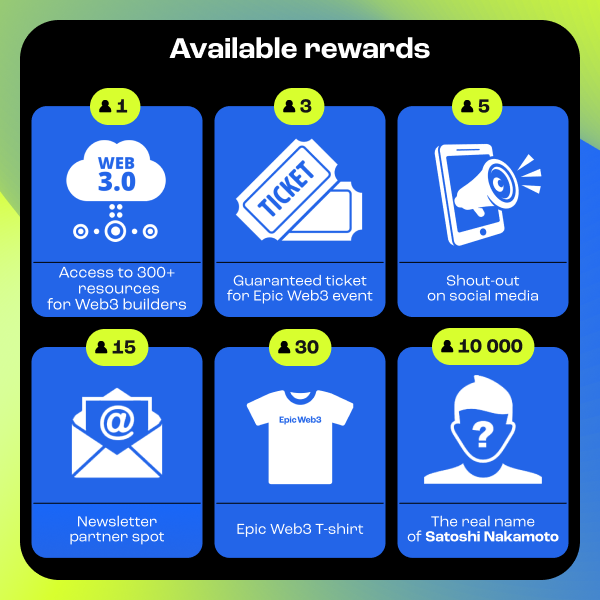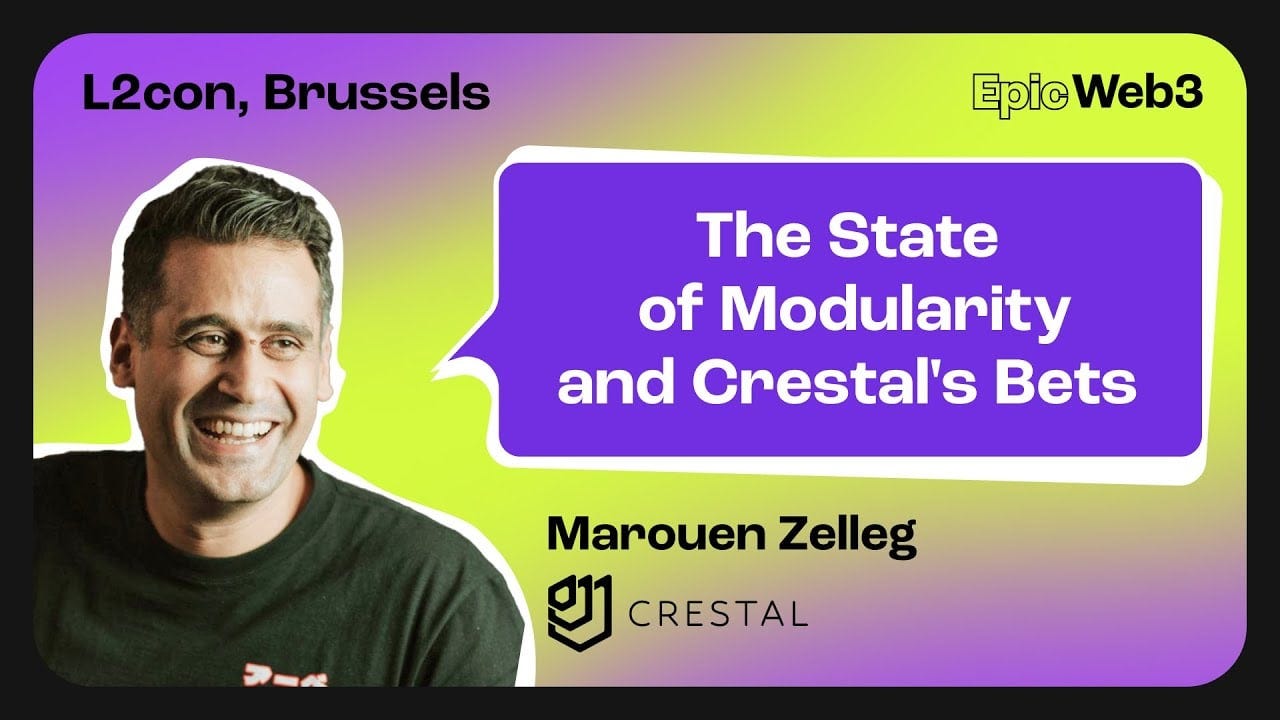🧞You can finally understand modular field...
Making modularity comprehensible again
Happy Monday frens🖖
"Through this journey, it became clear that while there are many narratives about infratech and building blocks in the ecosystem, there’s been no effective way to measure if they truly deliver on their promises. This realization led to the creation of Crestal" - sounds like a quote from some ancient Nordic saga, but no, it's just a description of the initial idea behind Crestal Network.
They want to make the modular ecosystem understandable and truly accessible to all builders, without the need to commit to one solution for life. How do they do that?
Scroll down to see (yeah, it's a tease):
🌏 You, Epic Web3 and beautiful Singapore
📦 All your modular tech in one place
📰 News-news-news
🇸🇬 Epic Web3 is coming to Token2049!
We have 3 events in September during Token2049 in Singapore!
💠 Modular & L2 Day | Sept 17th
🔁 Restaking & Infra Day | Sept 18th
🥮 BTC Scaling Day (co-organised by Nubit) | Sept 19th
We already have speakers from Crestal Network, NEAR / Nuffle Labs, Across, Arcana, Manta, Movement, ZKM / Metis, Everclear, Nubit, Somnia, Avail, TAC, Fluent, Ether.fi, Picasso, EigenLayer, DeFcor, Exocore, GOAT Network!
Grab your ticket below!
Share this newsletter and earn rewards
Click below, share this newsletter with your friends and earn cool rewards!
🤿 Deep-dive: Making modularity comprehensible again
Crestal Network is the Web3 Infrastructure Lego Platform that allows integration, management and performance benchmarking of modular services.
Basically, it allows developers to manage and test different components (like DA or settlement layer) for their products using quantifiable metrics.
Marouen Zelleg, Crestal's co-founder has shared his vision on modular landscape today and how Crestal wants to change that. Watch full presentation here.
Also, they're preparing to launch the public Testnet. Follow Crestal on X for updates and early access opportunities. Developers will be able to Discover, Design, and Deploy optimal web3 infrastructure for their projects on the Testnet.
3 main modular challenges
Challenge one: when it comes to modularity and building blocks, we’re really spoiled for choice. Crestal decided to do a little experiment—a tweet saying, "I’m building a roll-up. Here are the building blocks I’m considering. What am I missing?".
They started with 10 categories and 27 providers, but by the end, there was 66 providers across 19 categories. It was a bit of a wake-up call— devs need to think about shared sequencing, Oracles, DA, and all that. There are always more solutions out there that probably got missed.
Challenge two: Crestal also realized that every application is its own beast. They built a chatbot, Crestal, trained on Web3 architecture, and put it in the hands of builders to see what they’re working on and what they want to achieve. They learned a few things - DeFi is still king, but there are also seasonal trends like meme coins that pop up. These needs come and go, so it’s crucial to keep track of what building blocks are needed for the latest use cases.
Challenge three: about 74% of builders came in with a preconceived idea of which service, provider, or network would work best for them. But when digged deeper, it was clear they were really focused on the outcomes - performance, security, network effects. Breaking that down and figuring out what builders actually care about is key to helping them navigate the ecosystem.
The last challenge? Evaluating all these services in a logical and structured way. It’s easier said than done.
Crestal's Solutions
Crestal developed a dashboard that categorizes various modular services, beginning with data availability providers. They analyzed top market options and identified over 20 measurable metrics to guide decision-making when selecting services.
However, they soon discovered that collecting these metrics wasn’t straightforward—ranging from easy to nearly impossible, with most data falling into the "hard to gather" category. This highlighted a common issue: builders often rely more on marketing and preconceived notions than on objective data, making it challenging to navigate the ecosystem. Crestal’s mission is to address and solve this problem.
Crowdsourcing work
When building an application, one might assume that a modular design and decentralized backend will effectively achieve their goals, which is promising in theory. However, in practice, they’re often still relying on a centralized operator. The person who selected these services, whether it's a team member or an outside party like an RAS provider or consulting firm, is limited by their own knowledge, biases, or even that cool swag they got at a conference. These factors can lead them to favor one solution over another.
Crestal aims to change this by crowdsourcing the architecture, design, deployment and maintenance of applications. The goal is to bring in the best experts with the most competitive technology tailored to the use case, give them a chance to propose their solutions, and let the developers choose and build a relationship with the right provider.
Proof of performance
Managing all of this can get a little messy. How do you make sure you're using the best solver for indexing, RPC, or data availability? How can you be sure they're delivering what they promise?
To address this, Crestal is considering creating a proof-on chain, which would work like an L1 chain, with validators that check what's been deployed for projects and generate a proof of performance.
For example, if a developer has been promised a sub-dollar transaction, is it really being delivered? If a builder was promised 99% uptime, is he actually getting it? This system would help regulate the relationship between the developer and the provider, incentivizing them to build a solid reputation by providing good service to various players.
The endgoal
The ultimate goal here is to shift builders away from getting bogged down in the details of the technology, how it works, or the complexities of selecting and managing it. Instead, the focus should be on the end results and key metrics you want to achieve for your project.
Crestal's goal is to provide a single, transparent marketplace where domain experts can perform the services builders need, allowing them to focus on what really matters - the success of your project. That's the vision.
⚡Blitz News
OKX brings Solana ‘Blinks’ to Ethereum chains
TON Blockchain Expands Web3 Reach With Injective and Pyth
Arbitrum DAO boosts ARB utility with staking and governance upgrades
Renzo Protocol launches Solana’s first liquid restaking token on Jito
All right, that’s it for today! 👋 But wait…
You didn’t say “gm” on Twitter! Let’s catch up there for daily insights.
Sending growth your way,
Epic Web3







